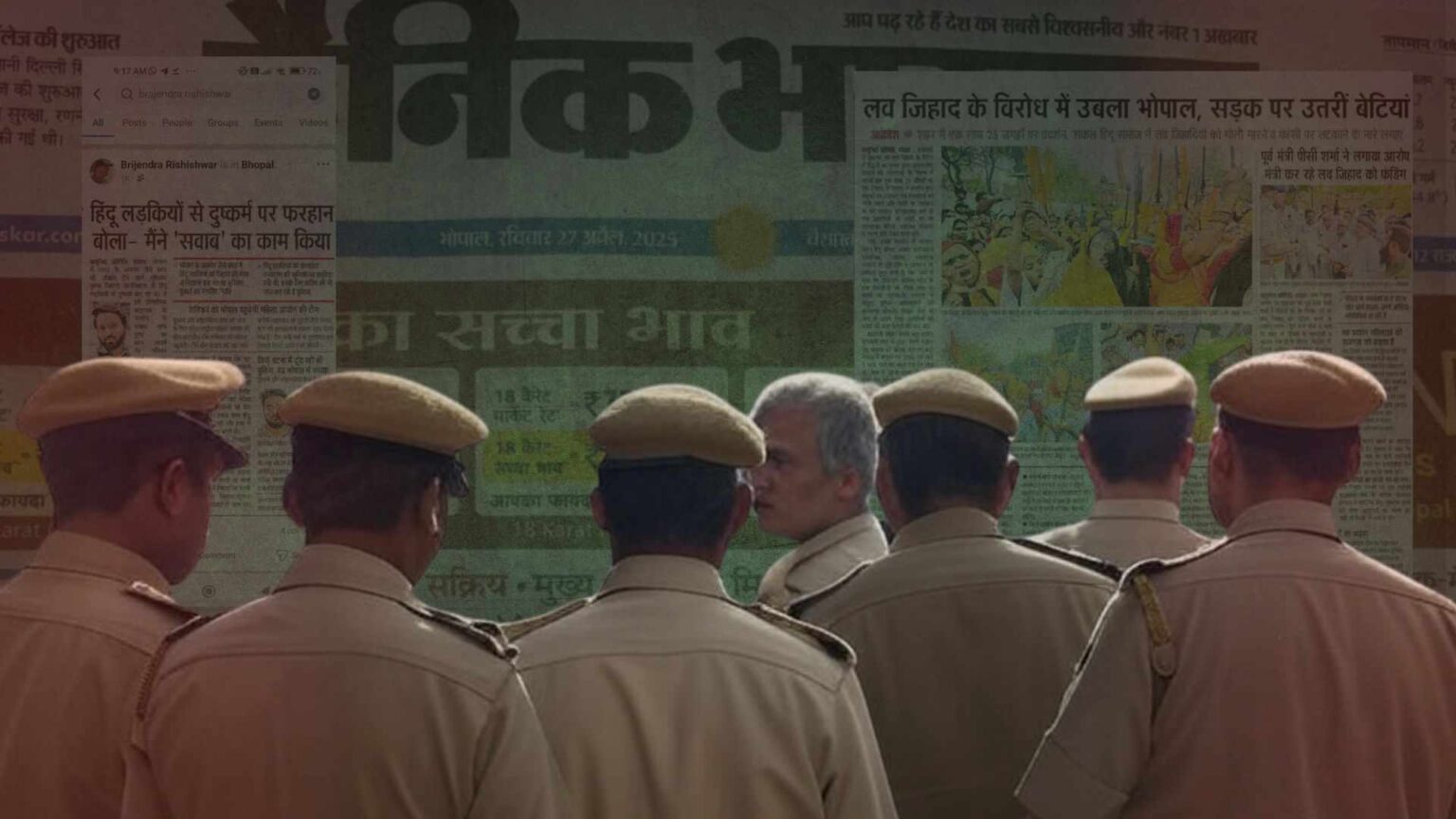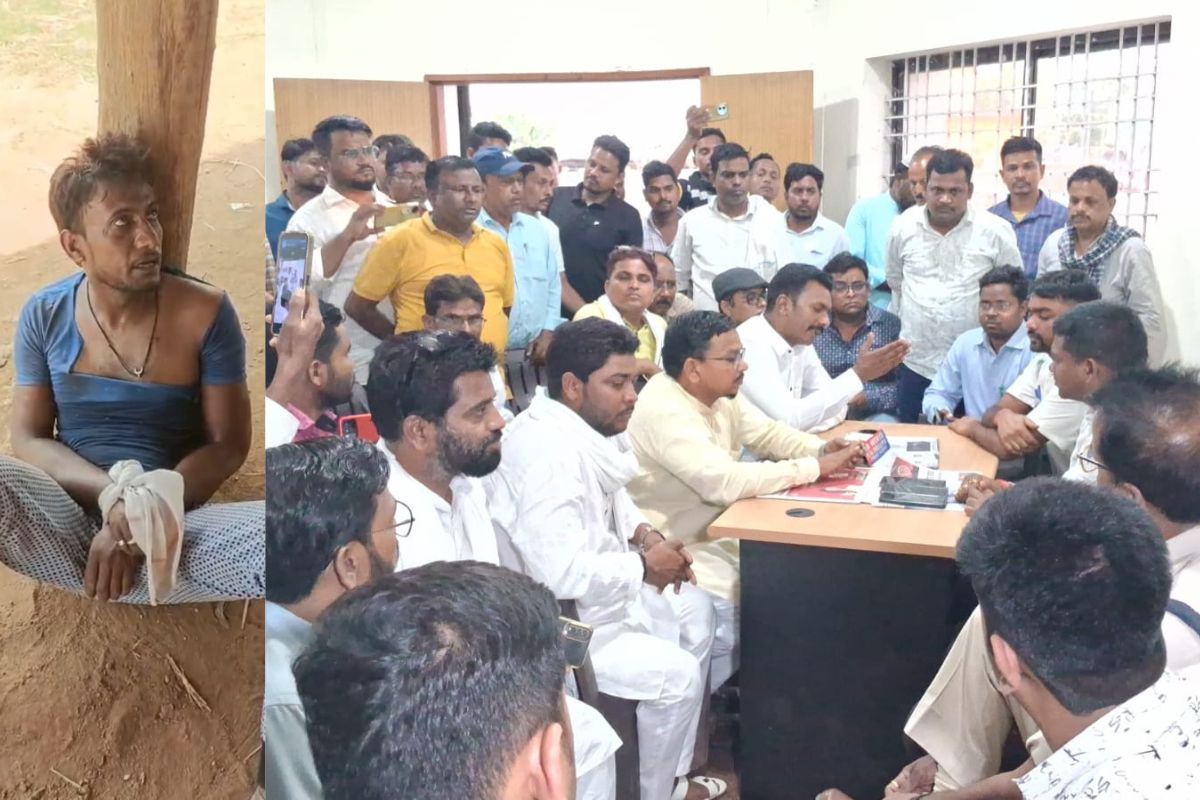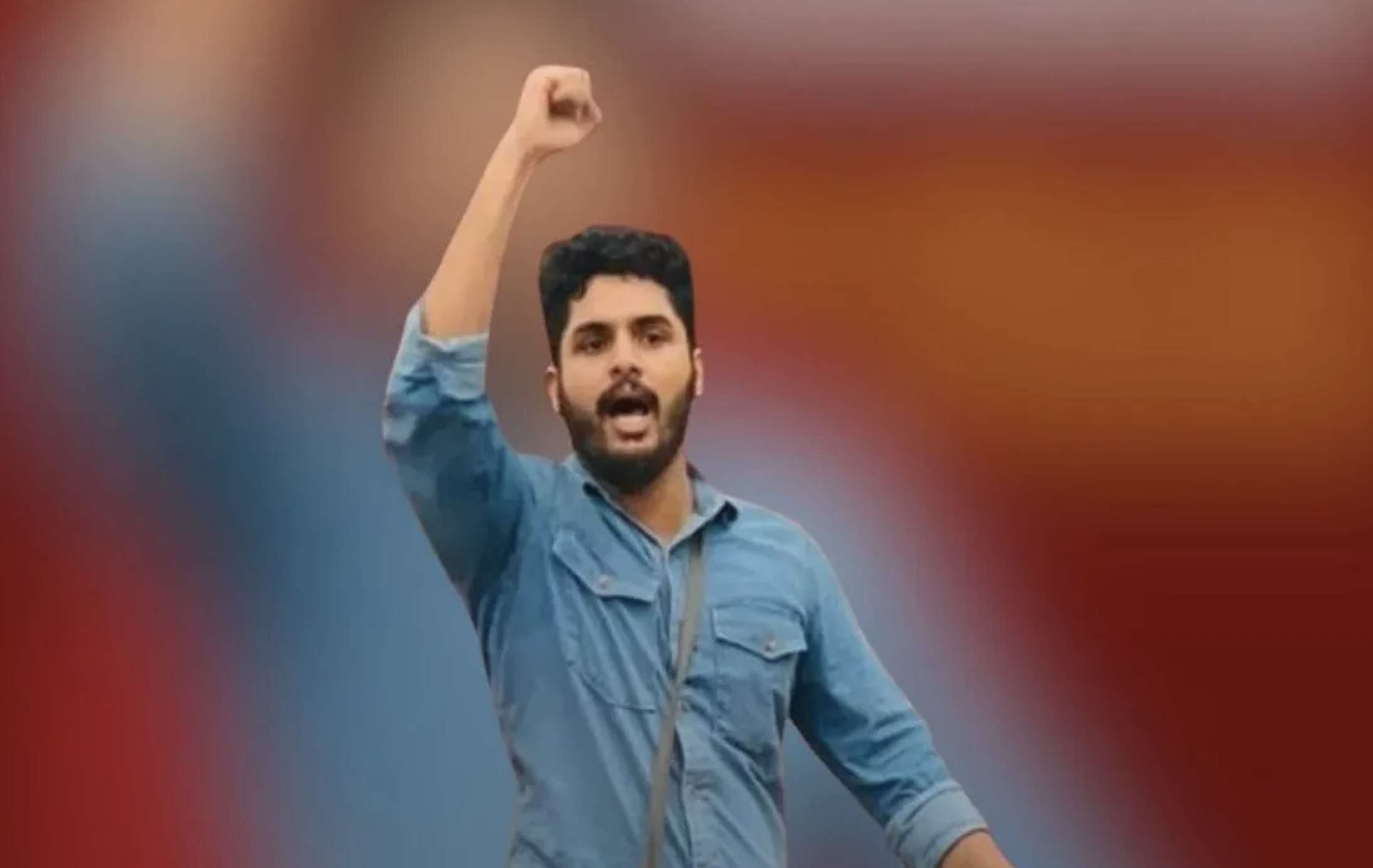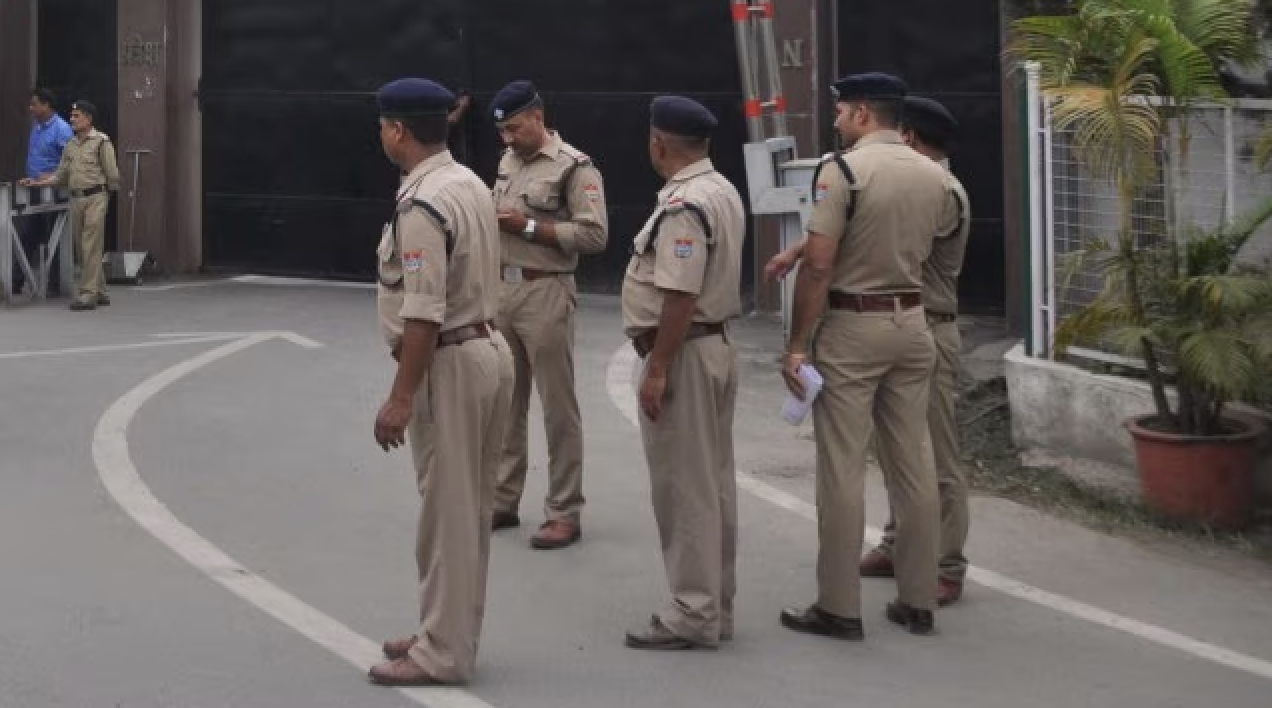
By KAUSHIK RAJ
New Delhi: On 10 August, the Delhi Police arrested 6 men for a demonstration organised on 8 August at Jantar Mantar in the capital city, where a crowd was seen chanting genocidal slogans against Muslims for several minutes. The arrested men included Ashwini Upadhyay, a Supreme Court lawyer and former spokesperson of the Bharatiya Janata Party (BJP), who had called for the protest, ostensibly to mark the day in 1942 when the Quit INdia movement was launched.
A Delhi court granted bail to Upadhyay the very next day. About the offence Upadhyay was booked for, under section 153A of the Indian Penal Code, 1860 (promoting enmity between different groups, acts prejudicial to maintenance of harmony) the court remarked that “except for mere assertion, there is nothing on record to show that the alleged hate speech… was done in the presence or at the behest of the applicant/ accused”.
The courts did not take that view, however, in the case of Jawaharlal Nehru University (JNU) scholar Sharjeel Imam, incarcerated since January 2020 for his alleged involvement in the Delhi riots of February 2020. Clashes between groups over the Citizenship Amendment Act (CAA), 2019 in the Jafrabad area of Delhi turned into communal conflagrations across northeast Delhi over four days beginning 23 February, killing at least 42.
“Going by this argument, how can my brother be held responsible for the riots in Delhi that took place nearly 25 days after he surrendered?” asked Muzammil Imam, Sharjeel’s brother. “Is Delhi Police trying to say that he conspired riots while he was in jail?”
Sharjeel surrendered to the Delhi Police on 28 January 2020.
The argument cited by the court in granting bail to Upadhyay was not considered in the bail applications of several others. Former JNU student leader Umar Khalid was addressing an anti-CAA rally in Nawada, in the eastern state of Bihar, at the time of the Delhi Riots, according to his Facebook page. Khalid is an accused in several first information reports (FIRs) related to the Delhi riots, including FIR No 59, pertaining to a conspiracy, in which the Unlawful Activities (Prevention) Act (UAPA), 1967 is invoked.
Despite multiple judgments (here, here and here) by Indian courts reiterating that bail is the norm and jail the exception, and notwithstanding several courts’ orders stating that the Delhi police’s case against some of the accused in the Delhi riots of February 2020 is weak, human rights campaigners and student leaders continued to spend months in incarceration for alleged provocative speeches and for mobilising others to participate in peaceful protests.
Viewed in comparison with the hate speech case in which seven of nine right-wing Hindu group leaders were granted bail within two months of arrest, the Delhi police were seen to have challenged bail selectively, using denial of bail as a ruse for pre-trial incarceration of the accused.
Anas Tanwir, Supreme Court lawyer and founder of the Indian Civil Liberties Union, said charges under UAPA had been invoked against those accused of conspiring to cause the Delhi riots even though there was not a single hate speech, and slogans had been raised only in defence of the Constitution. “On the other hand, he said, the Jantar Mantar accused got bail despite making their motive clear, that they want to establish a Hindu Rashtra through violent means, which goes against everything our Constitution stands for.
Calls For Murder, Bail For All Accused
Upadhyay’s call for a gathering at Jantar Mantar was supposed to have been against “colonial-era laws”, mainly by establishing a uniform civil code.
Following nationwide outrage over the videos showing protestors chanting in support of the murder of Muslims, Delhi Police registered an FIR against unknown people. It invoked sections 153-A (promoting enmity between different groups, the only non-bailable charge), 188 (disobedience to order duly promulgated by public servant) and section 51 of the Disaster Management Act, 2005 pertaining to violation of COVID guidelines.
A total of 9 men were arrested in a single FIR registered on 9 August. Of these, only two men arrested several weeks later remain in jail, while the organisers and key Hindu leaders were all granted bail.
Later on the night of 9 August, police identified four men—Vinit Kranti, Pinky Chaudhary, Uttam Malik and Deepak Singh—after scanning videos.
Deepak Singh Hindu, who claims to be president of an outfit called the Hindu Force, was detained on the night of 9 August from his house in northeast Delhi’s Karawal Nagar.
Upadhyay was arrested on 10 August, and granted bail the next day, but his bail order didn’t bring immediate relief to the other accused in the case.
Rejecting the bail pleas of Preet Singh, president of Save India Foundation who featured on the event posters as co-organiser; Deepak Singh Hindu and Vinod Sharma, head of the Sudarshan Vahini, link metropolitan magistrate Udbhav Kumar Jain observed on 13 August that their “scathing remarks” were “undemocratic and uncalled for from a citizen of this country”.
Co-organiser of the event Preet Singh’s bail application was next heard on 28 August before additional sessions judge Anil Antil.
Denying him bail, the court observed that Preet Singh “not only voluntarily organized the event but also actively participated and provided support to the views and contents of inflammatory speeches, which were being made by the participants / accused persons at that time, by acknowledging and endorsing via gestures and clappings intermittently.”
Singh then sought bail from the Delhi high court. On 15 September, advocate Vishnu Shankar Jain, representing Singh, argued before the bench of Justice Mukta Gupta that “demand of a Hindu Rashtra would not amount to promoting enmity between religious groups” and would not come within the purview of section 153A of IPC.
Muzammil, Sharjeel Imam’s brother, said this official admission that the Jantar Mantar protestors were demanding a ‘Hindu Rashtra’ passed muster quietly.
On 30 September, a Delhi court granted bail to Hindu Raksha Dal chief Bhupinder Tomar alias Pinky Chaudhary, the last accused in the Jantar Mantar case to be released on bail.
Delays, Adjournments In Bail Hearings For Delhi Riots Cases
All key accused in the Jantar Mantar incident were granted bail within two months of their arrest.
In contrast, among the seven FIRs filed against Sharjeel in different states for an alleged inflammatory speech he made in Bihar, he obtained bail by default in Assam and Arunachal Pradesh, where the police failed to file a chargesheet even six months after the arrest.
In an FIR filed in Uttar Pradesh, Muzammil said a bail application was filed on 16 June 2021. “After four months, the arguments have not concluded.”
Other accused arrested for participating in anti-CAA protests witnessed a similar delay in bail hearings and orders.
Meeran Haider, a Jamia scholar who was active in the anti-CAA protests in Jamia and was accused in FIR No 59 of the Delhi riots, filed a bail application on 30 June 2021. His bail application was not heard until the first week of August. The next hearing is on 15 November.
Umar Khalid’s bail application in FIR No 59 was filed on 13 July. Three months later, the arguments are still going on. His lawyer Trideep Pais argued that the Delhi Police’s chargesheet reads “like Family Man”, an OTT series.
The prosecution objected that the bail plea should have been filed under section 437 of the Code of Criminal Procedure (CrPC), 1973, which pertains to bail for non-bailable offences, and not under section 439.
Khalid’s friend and researcher Banojyotsna Lahiri said the Delhi Police was deliberately delaying the trial. “When there is no merit in their case, they want to just delay the proceedings to ensure a longer period of incarceration,” Lahiri told Article 14.
‘Bail On Account Of Parity’
The Jantar Mantar hate speech case moved at a different pace.
Forty-four days after his arrest, 41 days after his first bail plea was rejected, Preet Singh was granted bail on 24 September by the Delhi high court.
The court relied on the same argument used by a court to grant bail to Upadhyay. “… as per the video footages and the call records of the petitioner, the petitioner left the spot at around 2.00 PM whereafter the main provocative words/ slogans were shouted by the co-accused at around 4.00 PM,” the bail order read.
Pinky Chaudhary was granted bail 29 days after he surrendered dramatically before the Delhi Police, accompanied by a mob of cheering followers.
He surrendered on 1 September after being absconding from his residence but continuing to appear on TV debates from an undisclosed location.
Rejecting his anticipatory bail plea on 21 August, additional sessions judge Anil Antil observed that the accused cannot be allowed to “trample” Constitutional principles of inclusiveness “in the garb of libertarian concept of free speech”. Then the Delhi high court refused to grant him interim protection from arrest and Chaudhary surrendered.
Granting him bail on 30 September, the court relied on the Delhi high court’s order granting bail to co-accused Preet Singh. It said “he left the spot at 1.29 pm” and should get bail “on account of parity with co-accused Preet Singh.”
Delhi-based lawyer Tamanna Pankaj who has appeared in several human rights cases drew attention to the role of Delhi police in the courts granting bail to the Jantar Mantar accused. She said, “Pinky Chaudhary got bail on account of parity with co-accused Preet Singh because Delhi police didn’t challenge the earlier bail orders.”
In contrast, the day after the Delhi high court granted bail to JNU students Natasha Narwal, Devangana Kalita and Jamia Millia Islamia student Asif Iqbal Tanha in the Delhi riots conspiracy case, and observed in a strong order that “the right to protest is not outlawed and cannot be termed as a ‘terrorist act’ within the meaning of the UAPA”, the Delhi police challenged the order in the Supreme Court.
The court had found the students to have been only protesting and not involved in violence. “Was it really this urgent for the Delhi Police to keep three students in jail? Why was this urgency not shown when men were released who had, on camera, raised violent slogans against Muslims?” asked Pankaj.
A Comparison: Delhi Riots And Jantar Mantar Hate Speech
A simple comparison between the hate speech case involving leaders of Hindu groups and the case against the anti-CAA protesters showed wide disparities in police procedure and conduct.
Umar Khalid
No history of involvement in violence.
Talked about responding to hate with love at a February 2020 speech in Maharashtra.
Urged people to protest against the CAA and NRC using Gandhian principles of truth and non-violence.
Was addressing an anti-CAA rally in Nawada, Bihar during the time of the Delhi riots.
Booked under UAPA in the Delhi riots conspiracy FIR No 59 after BJP IT Cell Head Amit Malviya tweeted a selective portion of his speech.
Arrested on 13 September 2020.
Incarcerated for more than 13 months.
Bail hearing underway for three months in a lower court.
Pinky Chaudhary
Took responsibility for the attack on the JNU students on 5 January 2020.
Talked about sending Muslims to Pakistan if they don’t convert to Hinduism.
Admitted on live TV that it was his men who raised genocidal slogans at the 8 August Jantar Mantar protest.
Surrendered 20 days after absconding on 1 September.
No stringent laws applied.
Granted bail within a month of his arrest on 30 September, no comment on “tone and tenor” of his speech. Denying Sharjeel Imam bail, a Delhi court said the tone and tenor of Imam’s speech had a “debilitating effect upon public tranquillity”.
Sharjeel Imam
No history of involvement in violence.
Talked about a peaceful chakka jam (blockade) to protest CAA-NRC, a democratic method of protest used in the past on several occasions.
Booked in seven FIRs in six states for a speech he gave, including in the Delhi riots conspiracy FIR No 59 that invokes UAPA.
Incarcerated for 21 months, trial yet to start.
Bail hearings underway for months in several cases.
Bail rejected in one case on 22 October 2021 despite court admitting that evidence against him is scanty and sketchy.
“Tone and tenor” of his speech found to have debilitating effect on public tranquility.
Police Ignored A Conspiracy In Hate Speech Case
Arguing for his bail, Ashwini Upadhyay’s lawyer told the court on 11 August that he would be the “last person” to represent those who chanted the “reprehensible slogans”. Upadhyay’s argument was that the slogans were undesirable, but not a part of his protest.
Upadhyay first announced the protest with a tweet on 4 June 2021 urging people to “take printouts of the colonial-era laws and burn them” at the demonstration.
But in a tweet on 8 June, Upadhyay, while urging people to join the protest, also said: “Traitors, leave India! Jihadis, leave India! (Christian) Missionaries, leave India.”
Article 14 has previously tracked how Pinky Chaudhary openly incited violence against Muslims at the protest on 8 August and said, “No matter who comes to power, we will not allow Muslims to rise up.” He said, “We will get mullahs out of their graves and finish them from their roots.” He threatened that Muslims in India would have to convert to Hinduism or they would be sent to Pakistan.
All the accused in the Jantar Mantar hate speech case have a history of inciting violence against Muslims, the same report said.
Tamanna Pankaj, the lawyer, said it is difficult to fathom how an investigative agency did not see a conspiracy here. She said that given the organisers’ men’s history of violence or incitement of violence against Muslims, it was improbable that a group mobilised on its own and raised genocidal slogans.
“How can the Delhi police not even probe from the angle that men with a violent past organised this event as part of their larger conspiracy of inciting hatred against a community?” she asked.
The government lawyer did indeed oppose the bail pleas of all the accused in the hate speech case, but failed to argued that the men worked in tandem, and that the event could be part of a larger conspiracy.
“Anti-CAA protesters raising slogans in defence of the constitution were made part of an alleged chronology leading to the Delhi riots,” Pankaj said. Investigators recorded no such chronology of the activities of the hate speech accused despite their history of inciteful speeches.
Right-wing organisations themselves volunteered information that they had helped mobilise protestors to attend the Jantar Mantar demonstration. With Upadhyay appearing to distance himself from the hate-mongering chants at his event, Hindu Army chief Sushil Tiwari said Upadhyay had “betrayed” them.
He said more than 30 WhatsApp groups had been involved in mobilising people for the event. “Various Hindu right-wing outfits—Hindu Army, Save India, Hindu Force, Sanatani Sena, Satra Sanatan, Dev Sena, and Hindu Army Trust—were involved in the event,” he said.
Tiwari was later arrested on 20 August for his alleged role in mobilising men for the protest. Before his arrest, he said he had met the head of the Dasna temple, Yati Narsinghanand Saraswati, to “discuss the event”. Narsinghanand was himself critical of the BJP leadership for throwing his disciples under the bus. He demanded that Hindu organisations should speak up for the arrested men.
One of his disciples, Uttam Malik, was reported to be leading the sloganeering. Malik was arrested on 25 August.
The harshest criticism of Upadhyay’s stand that the slogan-shouting men had not been invitees to his protest came from none other than Pinky Chaudhary himself, who called Upadhyay a “coward” and “traitor”. In a tweet, he levelled serious allegations, claiming that Upadhyay “ran away” after “inciting Preet Singh and other Hindutva workers”.
These were publicly available materials.
The accused men also knew one another and worked for a common cause. Days after their release on bail, they were felicitated by Sudarshan News chief Suresh Chavhanke for “their work towards the goal of a Hindu Rashtra”.
At this ‘Hindu pride felicitation’ ceremony on 11 October, Suresh Chavhanke delivered a provocative speech with Jantar Mantar accused Preet Singh, Pinky Chaudhary, Vinod Sharma seated on stage. Chavhanke said a Hindu Rashtra can only be achieved through “militarisation of Hindus”.
‘State Bias In Investigating Conspiracy’
Tanwir, the SC lawyer, said there was a pattern of ignoring conspiracy by Hindutva groups, whether it was in the Delhi riots case or the hate speech case. “There is a state bias,” he said, in investigating these cases, drawing attention to the fact that 53 people were killed in the northeast Delhi riots, most of them Muslims. Multiple fact-finding reports including one by the Delhi Minorities Commission had pointed to the violence starting soon after a speech by BJP leader Kapil Mishra at Maujpur.
Pankaj pointed out that former JNU student leader Umar Khalid delivered a speech on 17 February in Amravati, which was available in the public domain, but no objection was raised until 2 March when BJP IT cell head Amit Malviya tweeted a selective portion, alleging it to be provocative. Khalid was arrested more than six months later.
She also raised the question whether the court is inclined to follow the principle of “bail is the rule and jail is the exception” for the anti-CAA protesters. She mentioned the recently rejected bail plea of Sharjeel Imam, and said the court had itself admitted that the evidence against Sharjeel was sketchy.
The Delhi riots accused continue to wait for “exceptional bail” orders. Activist Khalid Saifi’s bail application was not heard on 23 October, for the second time in a row. The judge was on leave, as he was on the previous date of 24 September. It has been three months since Saifi filed a bail application in FIR 59 related to the Delhi riots. Saifi is associated with United Against Hate, an organisation that provides legal aid to hate crime victims.
‘I Have To Start Everything Again’
Asif Iqbal Tanha, 25, the former Jamia MIllia Islamia student and anti-CAA protestor who was granted bail by the Delhi high court on 15 June, was in his final year of his Bachelor of Arts degree in Persian studies and preparing for his masters when he was arrested.
Now sensing hostility among universities where he hoped to seek admission for his post-graduation, Tanha said, “Nobody can compensate for the 13 months of my life that have been lost. I am out, but I still feel I am not free.”
The Delhi police action has not ended, said Tanha. He continues to be served notices to join the investigation in old FIRs related to the anti-CAA protests.
Expecting delayed proceedings as common in many UAPA cases, Tanha said he had prepared himself for a pretrial incarceration for as long as five years.
His career plans crushed, he said: “It feels like I have to start everything all over again.”
This story first appeared on article-14.com






